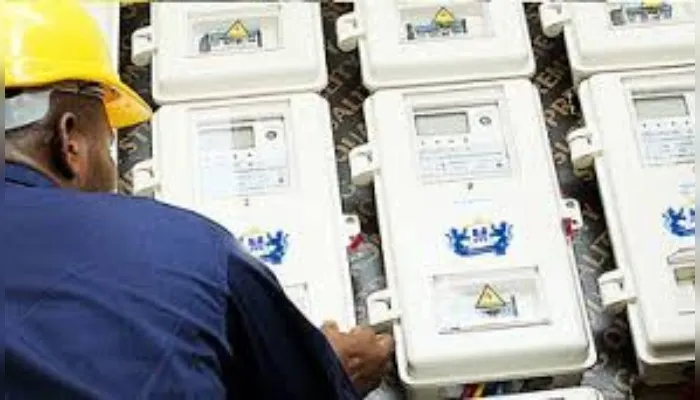Metro
DisCos Increase Electricity Tariff(Checkout New Tariff Rate Here)

Nigeria’s minister of state for power, Goddy Jedy-Agba has reportedly refused to confirm an electricity tariff increase that reportedly occurred in the last quarter of 2022.
According to reports, electricity tariffs were increased across DisCos in the country around mid-December 2022.
This was gathered from prepaid customers who bought power just before Christmas.
When asked during a January 5 public hearing about the increase in electricity tariffs, the state minister did not confirm or deny the increase.
Rather, he passed on the responsibility to the chairman of the Nigerian Electricity Regulatory Commission (NERC).
DisCos Increase Electricity Tariff(Checkout New Tariff Rate Here)
This occurred at the public hearing organized by the House of Representatives Committee on Power, on a bill to seeking to amend the Electric Power Sector Reform Act, of 2005.
As a response to verifying the tariff increase, Mr. Agba reportedly said: “Where is the chairman, NERC? He is the one that does anything on tariffs. I can’t speak on tariffs. Don’t put me in a corner. There is a chairman responsible for NERC. You want me to tell you what does not apply and you hold me on to that responsibility? The chairman of NERC is here. Let me bring him here. So, when you ask me, he will answer it. It is the chairman (of) NERC that is responsible for a tariff increase.”
Tariff increase: Information available to Nairametrics showed that the Nigerian Electricity Regulatory Commission (NERC) approved a minor tariff order review for December 2022.
According to the review order of Abuja DisCo seen by Nairametrics, NERC issued the adjustments to power tariffs on November 28 and directed DisCos to implement the changes from December 1, 2022. Band A customers will pay as much as N81.1/KWh.
See break down:
- Band A customers who receive a minimum of 20 hours of power supply a day will pay between N66.95 and N81.18 per kilowatt hour (kW/h).
- Band B customers who enjoy a minimum of 16 hours of power supply a day will now pay between N63.35 and N76.15 per kW/h.
- Band C customers who have a minimum of 12 hours of power supply a day will pay between N51.79 to N63.44 per kW/h; indicating no change from the previous tariff order that was active between July and November 2022.
- Band D customers who receive a minimum of 8 hours a day of power supply will pay between N33.95 and N55.82 per kW/h; indicating no change from the previous tariff order that was active between July and November 2022.
- Meanwhile, Band E customers who receive a minimum of four hours a day of power supply will pay between N32.88 and N48.37 per kW/h; indicating no change from the previous tariff order that was active between July and November 2022.
NERC yet to issue official confirmation: The NERC chairman who was at the hearing for a period of time, could not be reached to confirm the increase.
Nairametrics has also reached out to distribution companies (DisCos) and NERC to verify the increase publicly but failed to secure a formal confirmation.
However, an anonymous source at NERC told Nairametrics that the commission had carried out a minor review for December 2022. However, the review had not been officially made public because the commission still had other adjustments to make.
- Sources at some DisCos we contacted who spoke on the condition of anonymity also confirmed the same suggesting some Nigerians had their tariff has increased, while others on the same band have not seen any increase.
One of our sources said:
- “Right now, we are not sure if the tariff increase has been reversed or is still active for all power consumers across the country. This is why no one is confirming anything publicly.“
Current realities: Some power consumers who use pre-paid meters, told Nairametrics that when they bought power units between December 12 and December 18, they discovered that the tariff increase has been implemented.
- Ifeanyi Igwe, a civil servant who resides in the Garki area of Abuja told Nairametrics that he discovered that the 71 units he usually gets for loading a N4000 voucher had reduced. Meanwhile, Madam Rita, a hair stylist in an Ikeja suburb, Lagos, said she heard the tariff had increased but she is yet to renew her meter subscription.
- However, a fridge repairer in the Mararaba axis of Nasarawa state, Mr. Chukwuma told Nairametrics that the N4000 recharge he made on the prepaid meter at his home on December 19 still had the same 71.8 units. It is important to point out that these consumers are on different tariff bands and do not have the same access to the power supply on a daily basis.
Factors that impact the 6-month minor tariff review: According to the review order issued by NERC on November 28, the factors which impact the 6-month tariff reviews are Nigeria’s inflation rate; the foreign exchange rate; the United States inflation rate; available power generation capacity; natural gas prices which consists of benchmark gas price, gas transportation costs and contracted gas prices; as well as capital expenditure adjustments from the Transmission Company of Nigeria and distribution companies (DisCos).
BY IYABO AINA
Publisher News Rain Nigeria





















